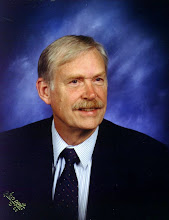You know you are getting old when you know the most of the authors you read. Over the years, I have taken the trouble to send notes to authors that I particularly enjoy, and to tell them what I liked about their work. I do not expect answers but often get them. Occasionally I get comments from readers of my work as well. I appreciate the comments, usually noting whether my correspondents got the idea I was writing about, not so much whether he or she liked what I wrote.
One of the writers I knew as a boy was Hunter Thompson. I wrote the following when the news came that he had died.
A Writer Died
He was a nice little boy who gave no clues to his neighbors that he would turn out to be a well known writer, a comic strip character (Uncle Duke), a big-time user of drugs and alcohol, and finally, a suicide.
When my brother Robert and I babysat for Hunter S. Thompson, he was an ordinary kid with a nice mother and father on a middle class street in Louisville, Ky. His parents were friends of my parents. He had a younger brother and an older half-brother. It could be that the death of his dad, Jack Thompson, when Hunter was still a boy, had a stronger influence on Hunter than any of us realized. He grew into his teen-age years without a dad to give him direction. It was apparent that Jack had been a very forceful parent. His death may have left a large vacuum.
I was active in the Boy Scouts and tried very hard to interest Hunter in joining Troop Nineteen at a local Methodist church. But he never quite got enough interest to join. We went our separate ways and seldom saw each other. I was at least three years ahead of Hunter in Louisville Male High School, and only occasionally heard that he was getting in trouble. Rumors at the time were that he went into the military to avoid jail for some infraction of the law.
It was years later that I began to see the books that Hunter wrote and noticed that he was very talented. Occasionally I would send Hunter a note, praising his work. The last note I sent occurred after I had seen him on a television show. It began, “Wow, Hunter, you sure look like your dad!” And he really did, including the baldness.
Recently I found a book of Hunter’s called The Proud Highway, Saga of a Desperate Southern Gentleman. It was a collection of Hunter’s letters. Even a cursory reading of them indicated how he determined at an early age what his life-style would be, and perhaps how he would die. When Hunter was seventeen, he wrote, “So shall we let the reader answer this question himself: Who is the happier man, he who has braved the storm of life and lived, or he who has stayed securely on shore and merely existed?”
It seems evident that Hunter decided that drugs and alcohol and living dangerously for its own sake were “braving the storm of life.” There are many other ways to brave that storm, but Hunter chose the self-indulgent one that many other writers chose. In his letters Hunter tells how he literally copied the works of famous writers, not to plagiarize, but to see of he could discover the elements of their style. F. Scott Fitzgerald, an alcoholic, was one of Hunter’s favorites. So was Ernest Hemmingway.
I am a hack who writes occasional books and articles, but Hunter was a WRITER with real talent. Yet, it seems to me that Hunter squandered his talent. He produced only a fraction of what he could have written had he been more sober and disciplined. It seems that he was pursuing fame as a writer by living as he thought his favorite writers did.
It is no surprise to me that Hunter ended his life with a blast from a gun. What surprises me is that he did not do it on July 2. For that was the day Ernest Hemmingway ended his own life with a blast from a gun.
There’s no substitute for perpetual adolescence.
Writing
Hunter S. Thompson

